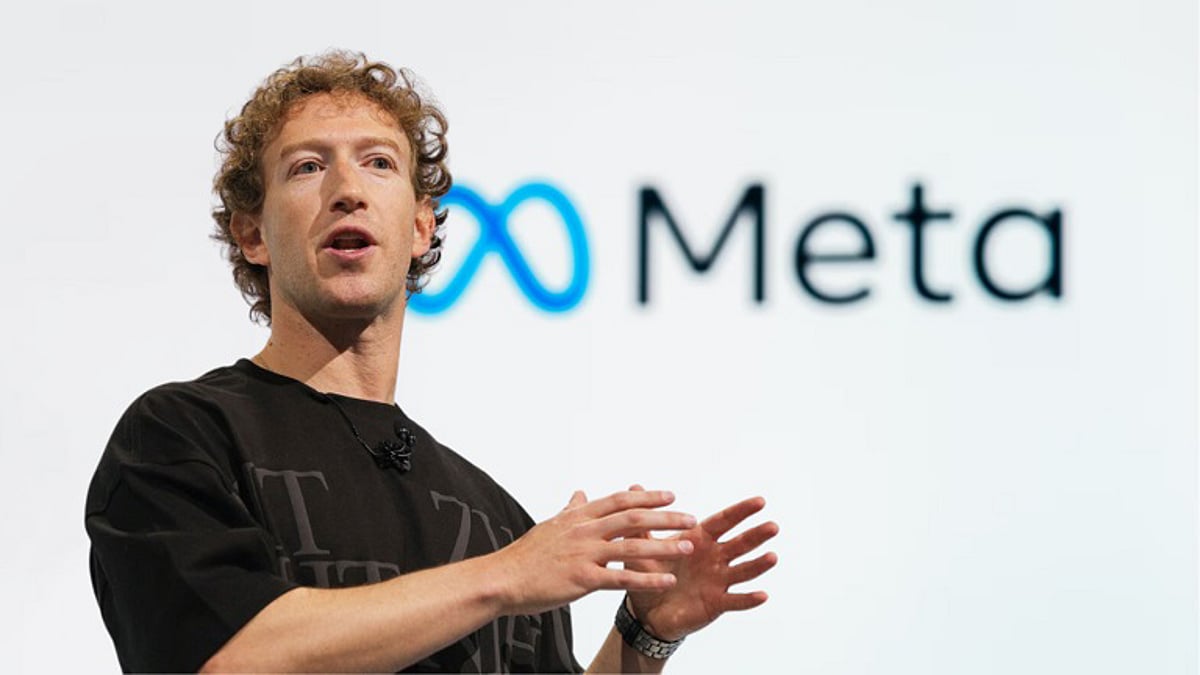In a bold step towards shaping the future of artificial intelligence, Mark Zuckerberg has unveiled Meta’s new ‘Superintelligence’ Group, signaling an aggressive push to compete in the global AI race. This initiative comes alongside news of significant new hires, underlining Meta’s determination to establish itself as a dominant force in the development of advanced AI systems.
The formation of the Meta Superintelligence Group reflects the tech giant’s evolving vision to build AI systems that go beyond current generative models and rival, if not surpass, human cognitive abilities.
Meta Superintelligence Group: Zuckerberg’s Vision for the AI Race
For months, Silicon Valley has been buzzing with speculation about Meta’s next move in the AI landscape. Now, Mark Zuckerberg has made it official. Meta’s Superintelligence Group is set to accelerate research and development in cutting edge AI, focusing on building artificial general intelligence (AGI) and superintelligence.
Superintelligence refers to AI systems with intellectual capabilities that significantly exceed those of humans across virtually all relevant fields from scientific research and creativity to problem solving and strategic planning. Zuckerberg believes that achieving superintelligence could fundamentally change how we interact with technology, unlock medical breakthroughs, and solve complex global problems.
The Meta Superintelligence Group will consolidate Meta’s AI research efforts, pulling together teams from different branches of the company, including the AI Research division (FAIR) and the teams behind Meta’s LLaMA large language models.

Why Meta is Doubling Down on AI Superintelligence
The creation of the Meta Superintelligence Group is not happening in isolation. It comes amid an intensifying global AI arms race, with tech giants like OpenAI, Google DeepMind, Microsoft, and Anthropic fiercely competing to develop more powerful AI models.
Zuckerberg however is adamant that Meta will not be left behind. In a recent statement, he emphasized, “Our long term vision is to build general intelligence, open source it responsibly, and make it widely available so everyone can benefit.”
Industry experts believe this reflects a strategic shift within Meta. While the company continues to invest heavily in its metaverse ambitions, AI is rapidly emerging as an equally if not more critical pillar of its future. The stakes are enormous, with the potential for superintelligent AI to revolutionize industries, disrupt economies, and reshape society.
Key Hires Signal Meta’s AI Ambitions
To lead the charge, Meta has made several high profile hires for its Superintelligence Group, bringing onboard some of the brightest minds in the AI field. Among them are:
Alex Smola, a renowned AI researcher formerly at Amazon, known for his groundbreaking work on machine learning and distributed AI systems.
Linxi “Jim” Fan, celebrated for his expertise in AI safety and alignment research, ensuring that future AI systems remain beneficial and controllable.
Tomas Mikolov one of the pioneers behind Word2Vec, an innovation that transformed natural language processing and laid the foundation for modern AI language models.
These new hires not only bolster Meta’s technical expertise but also demonstrate the company’s willingness to invest heavily in attracting top AI talent, a move reminiscent of OpenAI’s rapid team expansion in recent years.
The Global AI Superintelligence Race Heats Up
Meta’s aggressive entry into the superintelligence space adds fuel to an already fierce global AI competition. In recent months:
OpenAI has been making headlines with its GPT-4.5 and the development of GPT-5.
Google DeepMind has pushed the boundaries with its Gemini models.
Anthropic continues to refine its Claude AI systems.
Microsoft has deepened its partnership with OpenAI while building its own AI infrastructure.
With the launch of the Meta Superintelligence Group, Zuckerberg is making it clear that Meta intends to be a leader, not a follower, in this technological revolution.

Potential Benefits and Ethical Challenges
While the promise of superintelligent AI excites technologists, it also raises serious ethical and safety concerns. The development of AI systems with cognitive abilities beyond human comprehension poses risks, including:
Loss of control over AI behavior.
Potential misuse for surveillance, cyber warfare, or autonomous weaponry.
Economic disruption through widespread automation.
Concentration of AI power among a handful of corporations.
Zuckerberg has stated that Meta is committed to building superintelligence responsibly. Open sourcing key technologies, promoting transparency, and engaging with global regulators are among the steps Meta claims it will take to address these risks.
However, critics remain skeptical. They argue that the commercial incentives of Big Tech often overshadow ethical considerations. The true test will be whether Meta, and other AI leaders, can prioritize safety and societal benefit over profit and market dominance.
A Pivotal Moment for AI and Humanity
The debut of the Meta Superintelligence Group marks a defining moment not only for Meta but for the broader AI ecosystem. As Zuckerberg rallies top talent and resources to pursue artificial general intelligence and superintelligence, the world watches with anticipation and caution.
The coming years will determine whether superintelligent AI becomes humanity’s greatest tool for progress or its most dangerous invention. Meta’s decisions, along with those of its competitors, will shape this future.
For now, one thing is clear the AI race has entered a new, more advanced phase, and Meta’s Superintelligence Group is poised to be at the center of it.
